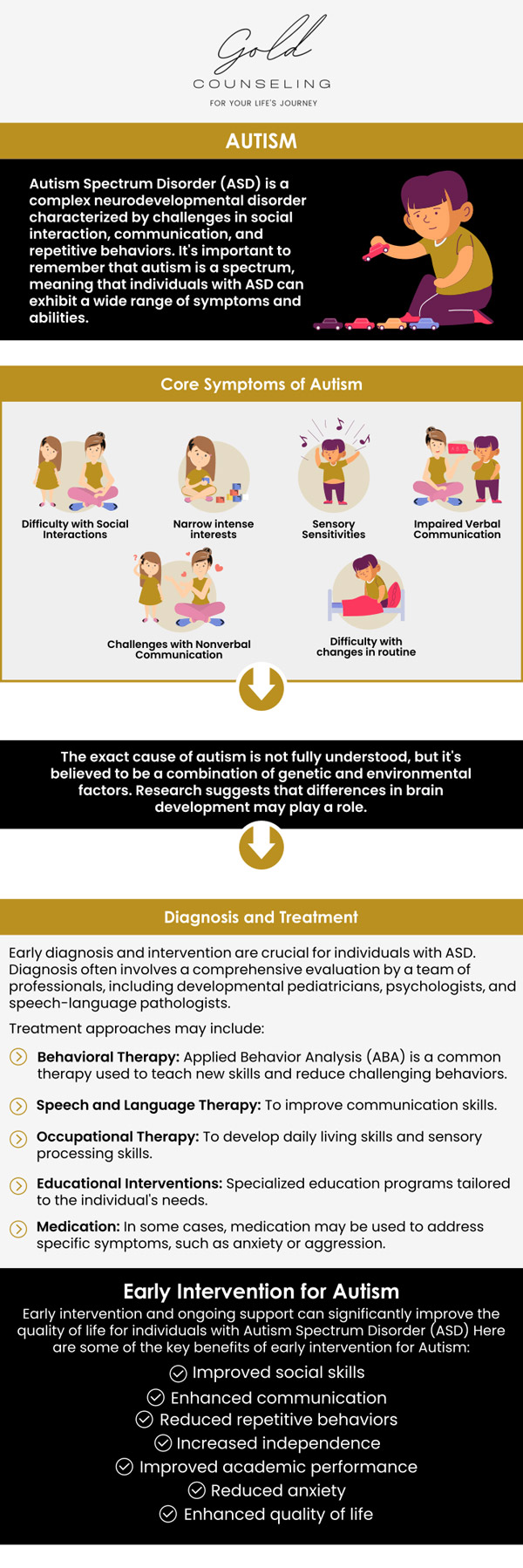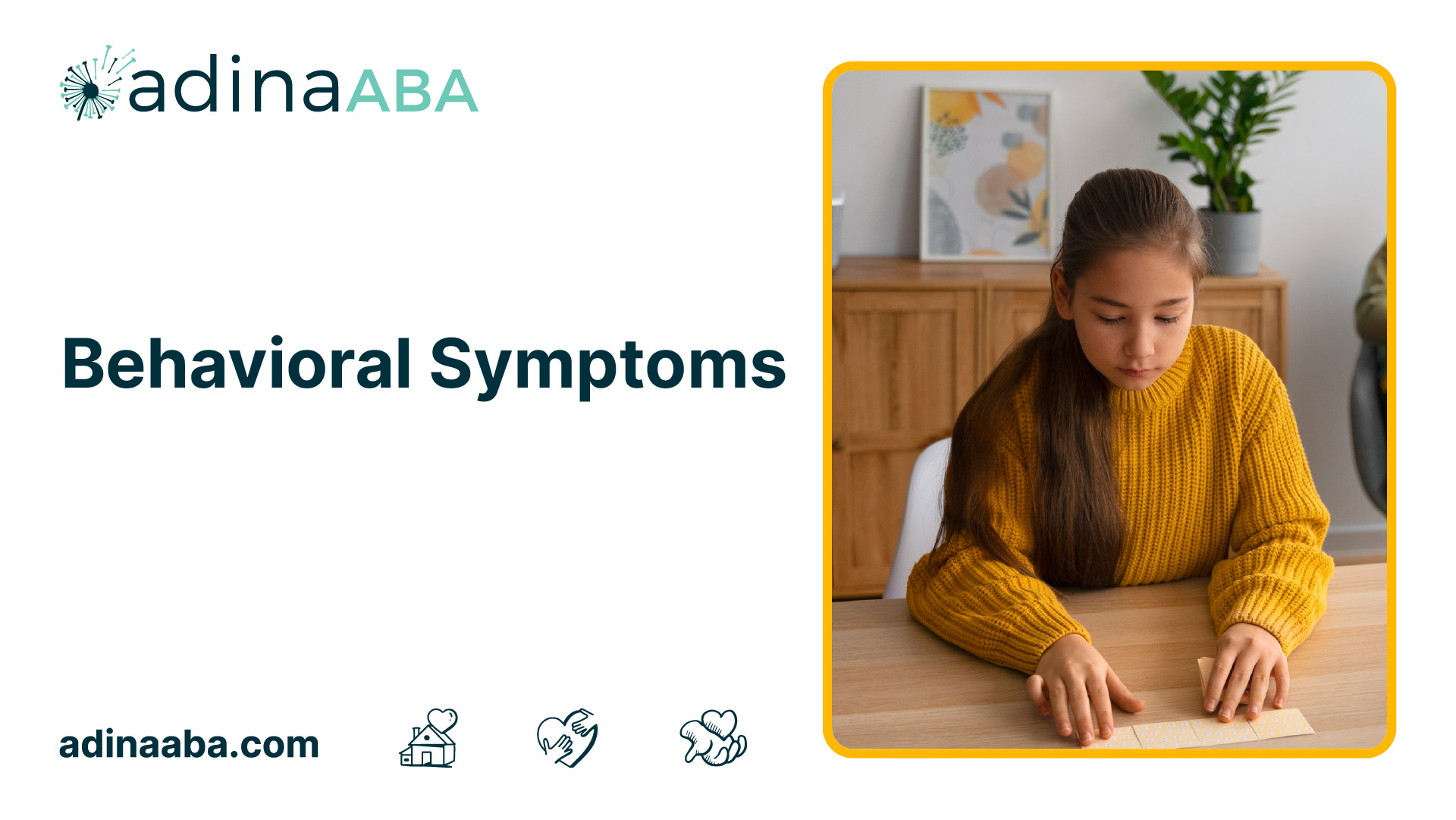What to expect when working with an Autism Behavioral Therapy program practitioner
What to expect when working with an Autism Behavioral Therapy program practitioner
Blog Article
Trick Indications and Signs to Identify in Individuals With Behavioral Autism
When you run into someone with behavior autism, recognizing crucial indications and signs is important. Furthermore, sensory level of sensitivities can lead to frustrating experiences.
Challenges in Social Communications
When you interact with someone on the autism range, you could notice they battle with social cues and communication. These difficulties can make social communications feel frustrating for them.
Additionally, you might find that they choose routines and familiar setups, which can limit their willingness to engage in new social situations. When they do involve, they could discuss their interests in great information without noticing if you're interested. This can bring about one-sided discussions that leave you feeling separated. Recognizing these obstacles can help you come close to interactions with empathy and persistence, promoting a much more comfy atmosphere for both of you.
Trouble With Verbal and Non-Verbal Interaction

Acknowledging these indicators is necessary, as it assists you better support and engage with individuals on the autism spectrum. By understanding their interaction difficulties, you can promote much more meaningful connections and offer a much more helpful atmosphere.
Recurring Actions and Regimens
Interaction obstacles often come with other indications of autism, such as repetitive behaviors and a strong choice for regimens. You could see that individuals with autism often participate in specific, repetitive actions, like hand-flapping, rocking, or duplicating expressions. These behaviors can supply comfort and a feeling of control in an often overwhelming globe.
Regimens are just as vital; several people flourish when they adhere to a structured timetable. You might find that changes to these regimens can bring about significant distress. If they have a day-to-day routine of eating breakfast at a specific time or following a specific route to school, any type of interruption can create anxiety.
Identifying these patterns assists you comprehend their actions and give assistance. By suiting their demand for routine and permitting repetitive activities, you can produce a much more comfortable environment that alleviates their obstacles.
Sensory Level Of Sensitivities

Common Sensory Triggers
Sensory sensitivities can considerably impact everyday life for individuals with autism, as certain stimulations typically activate overwhelming reactions. Typical sensory triggers consist of loud noises, bright lights, and strong smells. You could observe that abrupt audios, like alarm systems or alarms, cause anxiousness or distress. Fluorescent lighting in stores can really feel harsh and awkward. Textures can additionally play a considerable duty; harsh materials or specific food appearances may be excruciating for you. In addition, crowded places can bewilder your detects, making it difficult to relax or concentrate. Understanding these triggers can help you manage your environment much better. By understanding what influences you, you can take actions to minimize pain and enhance your day-to-day experiences.
Behavioral Feedbacks Clarified
Recognizing your behavioral reactions to sensory level of sensitivities is essential, as they frequently reveal exactly how you interact with the globe. You may discover that specific sounds, lights, or appearances bewilder you, resulting in anxiousness or pain. When faced with these stimuli, you may take out, cover your ears, or perhaps react strongly. These responses aren't simply traits; they're your means of handling overstimulation. You might likewise find yourself looking for particular sensory experiences, like check my source deep stress or peaceful atmospheres, to assist ground on your own. Recognizing these patterns helps you comprehend your demands much better and can guide how you communicate them to others. By recognizing your sensory sensitivities, you can work towards producing an environment that feels much more manageable and comfy for you.
Coping Strategies Introduction
Recognizing your sensory level of sensitivities is simply the very first step; now it's time to check out coping techniques that can help you take care of those experiences properly. Begin by developing a sensory toolkit customized to your demands. This might include noise-canceling earphones, fidget playthings, or soothing fragrances. Establishing a structured regimen can additionally give predictability, decreasing stress and anxiety around sensory overload. When you feel overloaded, take breaks in a peaceful room to regroup. Practicing mindfulness techniques such as deep breathing can help ground you in the moment. Furthermore, interact your demands with those around you; having supportive loved ones can make a massive distinction. Keep in mind, locating what works finest for you may require time, so be open and patient to trying brand-new strategies.
Limited Passions and Emphasis
While several individuals create a vast array of interests, those with autism commonly demonstrate restricted passions and an intense concentrate on particular topics. You could observe that somebody with autism can spend hours delving right into their favorite subject, whether it's a particular kind of train, a certain flick, or a scientific principle. This extreme focus isn't simply a leisure activity; it can come to be a main component of their identity and social interactions.
You might locate that discussions rotate around these rate of interests, and they may have a hard time to involve in wider topics. By comprehending and acknowledging these limited interests, you can promote a supportive atmosphere where they feel valued and understood, allowing for even more significant links and communications.
Emotional Law Problems
People with autism usually face difficulties in psychological regulation, which can be influenced by their intense concentrate on details interests. You might see that when a person is deeply engaged in a recommended activity, they can experience strong emotions, whether enjoyment or stress. When points do not go as intended., this intensity often makes it hard for them to move equipments or handle their feelings - Autism Spectrum Therapies.

Variability in Developmental Landmarks
When it concerns developmental milestones, you'll observe that individuals with autism commonly reveal a wide variety of irregularity. Some may strike landmarks in a timely additional hints manner, while others might hang back or progression at a different pace. You may see a kid succeed in language abilities but struggle with social communications. This incongruity can be complicated, as standard benchmarks don't constantly use.
It's vital to identify that each individual's journey is one-of-a-kind. Some may develop complicated abilities early, only to face difficulties later on. Others may take longer to attain basic milestones but then flourish in specific areas. Observing these patterns can help you comprehend their staminas and needs much better.
Often Asked Questions
How Is Autism Identified in Children and Adults?
To diagnose autism in kids and grownups, professionals examine behavior, interaction skills, and social communications. They frequently use standardized examinations, meetings, and monitorings to determine if a specific fulfills the criteria for autism spectrum disorder.
Exist Different Kinds Of Autism Spectrum Disorders?
Yes, there are various kinds of autism spectrum problems, consisting of Asperger's disorder and pervasive developmental disorder-not otherwise defined. Each kind differs in intensity and qualities, so comprehending these differences can aid you better assistance individuals with autism.
What Treatments Are Reliable for Individuals With Autism?
When taking into consideration effective therapies for individuals with autism, you'll locate alternatives like Applied Behavior Analysis, speech treatment, and work-related therapy. Each method can help enhance interaction, social skills, and everyday operating customized to individual requirements.
Can Individuals With Autism Lead Independent Lives?
Yes, people with autism can lead independent lives. With the best assistance, skills training, and resources, you can assist them develop self-sufficiency, handle day-to-day tasks, and thrive in different settings, promoting their freedom.
How Can Households Assistance Loved Ones With Autism?
You can support your enjoyed ones with autism by producing an organized environment, motivating their passions, exercising persistence, fostering interaction, and promoting social skills. Commemorate their success, no matter how tiny, and construct a supportive area.
Although numerous people on the autism range can utilize and comprehend language, they often encounter substantial difficulties with both non-verbal and verbal communication. Recognizing these signs is crucial, as it aids you much better assistance and engage with people on the autism range. You could discover that people with autism usually involve in details, repetitive actions, like hand-flapping, rocking, or repeating phrases.Sensory level of sensitivities can substantially influence day-to-day life for individuals with autism, as particular stimuli commonly set off frustrating reactions.When it comes to developing milestones, you'll discover that people with autism frequently show a vast range of variability.
Report this page